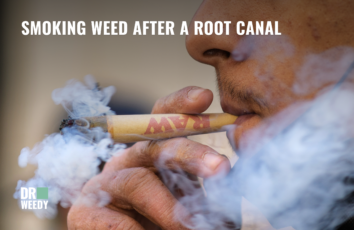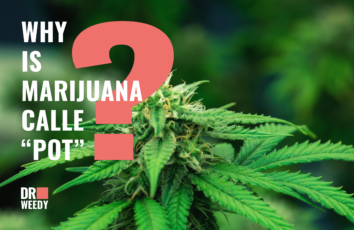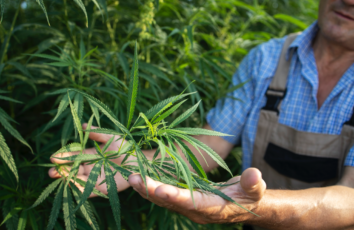Can a Dentist Tell If You Smoke Weed?
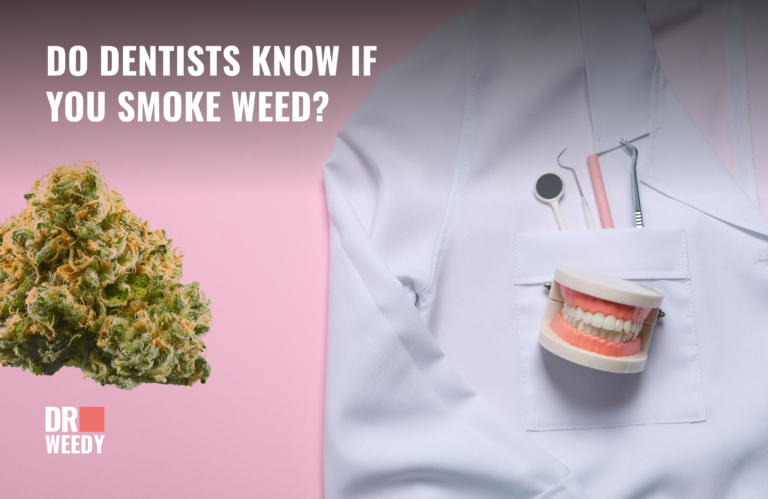
While physical signs and specialized testing can sometimes detect marijuana use, there is no foolproof way for a dentist to know for certain if a patient smokes weed based solely on an oral examination. Many dentists may choose not to broach the subject at all unless it directly relates to the patient’s care and treatment needs.
However, cannabis use can potentially leave certain telltale signs in the mouth that an observant dentist may pick up on during a routine oral exam. Understanding these signs, the factors that influence their visibility, and the ethical boundaries around patient privacy can help provide more context.
Visible Signs in the Mouth
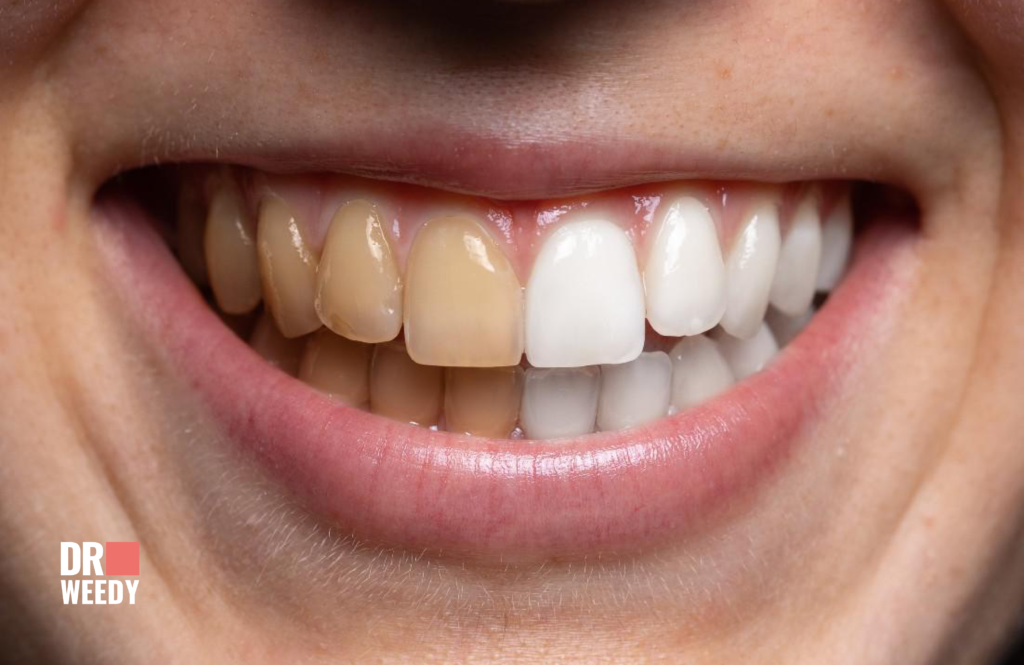
One of the primary ways a dentist may suspect cannabis use is by observing physical evidence in the mouth. Smoking anything, including weed, can leave certain telltale signs:
-
Stained Teeth
The tar and resin in smoke can cause extrinsic staining on the surfaces of the teeth over time, leading to a yellow or brown discoloration.
-
Oral Inflammation
Inhaling hot smoke can irritate and inflame the soft tissues of the mouth, including the gums, tongue, and inner cheeks. This may manifest as redness, swelling, or white patches.
-
Dry Mouth
Cannabis is well-known for causing dry mouth or “cotton mouth” due to reduced saliva production. Chronic dry mouth increases the risk of tooth decay, gum disease, and other oral health issues.
-
Leukoplakia
Heavy, long-term smokers may develop thick, white patches called leukoplakia on the insides of their cheeks or tongue. While usually benign, leukoplakia can sometimes be a precancerous condition.
It’s important to note that these signs are not exclusive to cannabis use and can also result from smoking tobacco, vaping, poor oral hygiene, or other factors.
Detecting THC and Cannabinoids
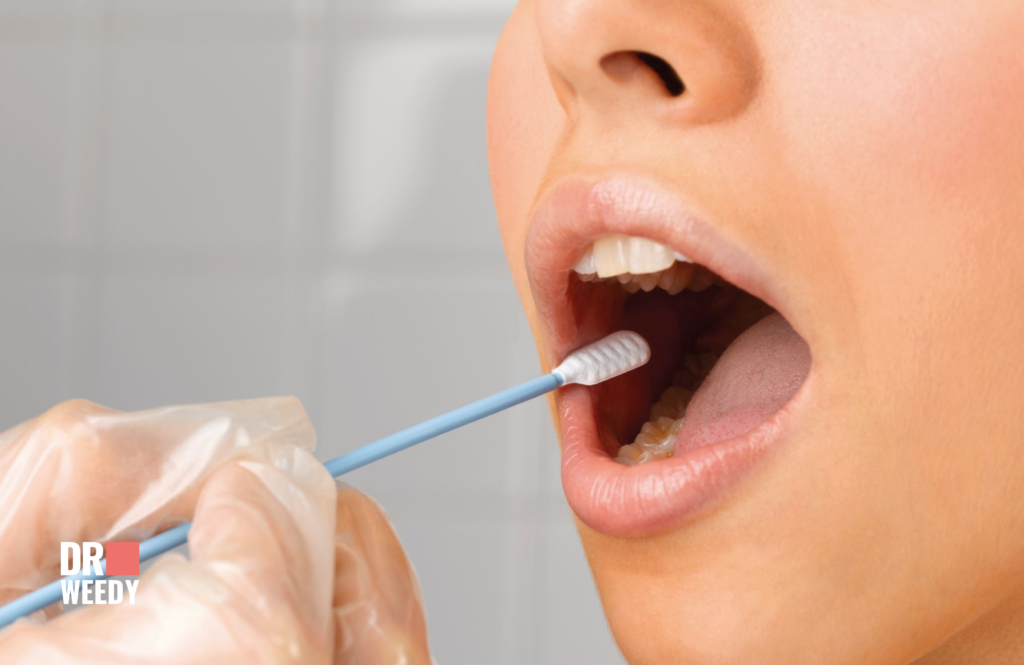
Beyond just visually inspecting the mouth, some dentists may have the capability to detect chemical compounds like THC (tetrahydrocannabinol), the primary psychoactive ingredient in cannabis. This can potentially be done through methods like:
Saliva Testing
THC and other cannabinoids can be detected in oral fluids for up to 72 hours after use. However, most dental offices do not routinely perform saliva drug testing.
Specialized Breath Analysis
Emerging technologies can potentially identify specific vapor compounds in a person’s breath that may indicate recent cannabis use. But these are not yet widely available or used in general dental practice.
While dentists have access to patients’ medical histories and records, they generally do not have a reason to test for drugs like marijuana unless directly relevant to a patient’s treatment needs or disclosed by the patient themselves.
Factors Influencing Detection
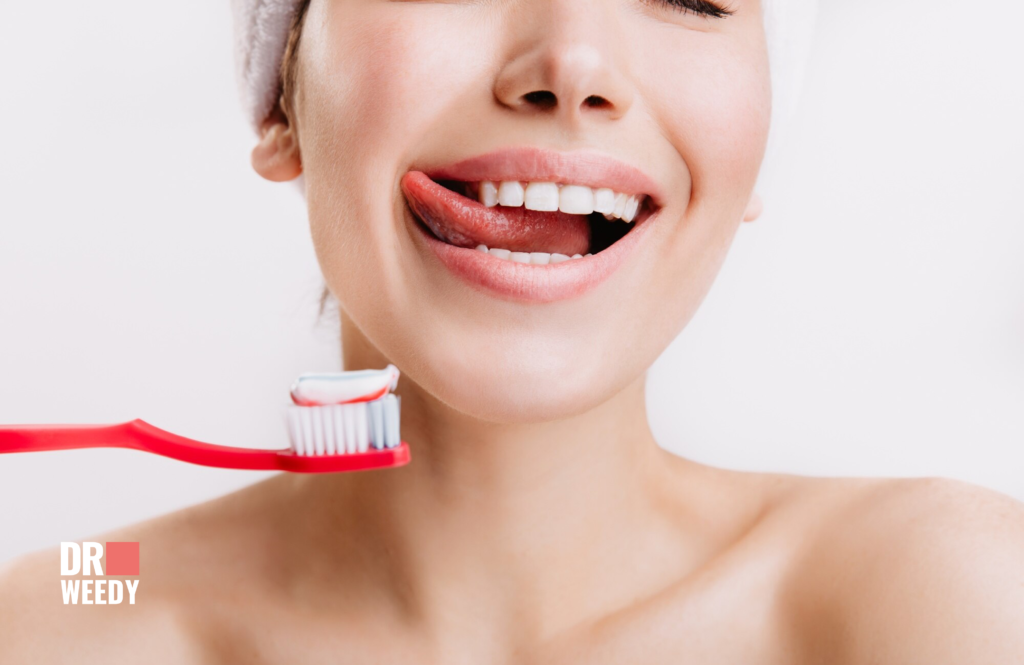
Several variables can impact how evident the signs of cannabis use may be to a dentist, including:
-
Frequency and Duration of Use
Occasional or infrequent cannabis users are less likely to exhibit prominent oral signs compared to long-term, heavy smokers or vapers.
-
Method of Consumption
Smoking or vaping marijuana tends to have more direct effects on the mouth compared to other consumption methods like edibles or tinctures that avoid combustion.
-
Oral Hygiene
Good oral hygiene practices like regular brushing, flossing, and professional cleanings can help mitigate some visible signs of smoking.
-
Time Since Last Use
Many physical signs and residual compounds can dissipate over time, especially for infrequent users who may have long stretches between cannabis sessions.
-
A Dentist’s Experience
Some dentists may be more skilled at identifying potential marijuana use based on their training, years of experience, or personal views on the subject.
Privacy and Ethics

Even if a dentist suspects cannabis use, they are bound by strict patient privacy laws and ethical codes that prevent them from disclosing this information without the patient’s consent, unless:
- The patient is a minor
- Impairment raises concerns about the patient’s decision-making ability
- Cannabis use directly impacts the patient’s treatment or dental issues
According to the American Dental Association’s Principles of Ethics and Code of Professional Conduct, dentists are expected to “respect the rights of patients” while also considering their own personal values.
The Bottom Line
Practicing good oral hygiene, being mindful of consumption methods, and having an open dialogue with dental professionals can help cannabis users maintain optimal oral health while respecting personal boundaries. As cannabis legalization evolves, perceptions within dentistry may shift as well.






















